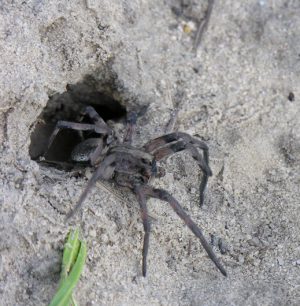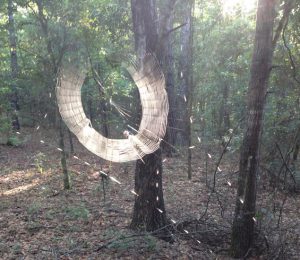
By Les Harrison
Wakulla County Extension Director
The early arrival of spring in Wakulla County, and the rest of north Florida in 2017, portends the possibility of some interesting occurrences. If the pattern holds and a late season freeze does not wreck the progress, everything will get a head start on the growing season.
Warm season grasses are already greening up and mowing the lawn will likely begin in a few weeks. Fruit trees and blueberries are already blooming, with early season blueberries already setting fruit.
Spring vegetable gardens are in the preparation and installation phase, too. The healthy diet choices are a few months from harvesting, but there are some residents that will be dining before the harvest.
The destructive insect is set to have a year of aggressive expansion. Stinkbugs, caterpillars of every imaginable size and color pattern, aphids, scale insect, and the entire rogue’s gallery of hungry bugs are ready to swarm every dining option in Wakulla County.
In addition to the conventional, over-the-counter responses to the uninvited dinner guest, nature provides some viable responses. One of these control options are spiders.
Spiders have long been credited with a high degree of malevolence. Possessing eight legs, but completely silent and lurking in dark recesses has not helped with the public image challenge.
Reality is quite different. Wakulla County’s native spiders are not aggressive to humans and most pass their lives unseen.
Two local spiders which are large enough to be noticed, several inches toe to toe, are the Wolf Spider and the Golden Orb Spider. While big on the local spider scale, they lead very different lives.
Wolf spiders are ambush predators and superb insect hunters. They can be frequently found in in burrows serving both as their home and a base for a surprise attack on unlucky bugs which happened to wonder to close.
While seen during the day, these spiders are primarily nocturnal hunters which are known to spring out and chase their intended victims for short distances. Two of their six eyes are large and will reflect light at night, making them easy to spot with a flashlight.
If provoked, they will bite non-insect molesters. Their venom is mildly toxic and will cause swelling and redness.
These spiders are protective mothers with an egg sac attached at the end of their abdomen. This allows the mother-spider to carry her unborn young with her.
The abdomen is held in a raised position to keep the egg case from dragging on the ground. Despite this cumbersome trait, wolf spiders are still capable of effective hunting.
Immediately after the next generation of wolf spiders emerges from their protective silken case, they clamber up their mother’s legs and crowd onto her abdomen. She provides them with food and protection until they are able to fend for themselves.
Golden Orb Spiders, sometimes called banana spiders, are noted for their impressive large webs. These large spiders are frequently found on their webs between trees or large shrubs.

The yellow or golden tinted webs are used to trap insects which are attracted to its color and may be over a yard wide. Portion of the webs are sticky, but outer web is not and is used by the spider for quickly reaching a victim.
As with the wolf spider, the golden orb spider’s venom is not lethal to humans. It has a neurotoxic effect similar to that of the black widow, but not as potent.
In 2017 home gardeners are going to need all the help available, including the eight leg type.
To learn more about spiders in Wakulla County, contact your UF/IFAS Wakulla Extension Office at 850-926-3931 or at https://blogs.ifas.ufl.edu/wakullaco/
 0
0
